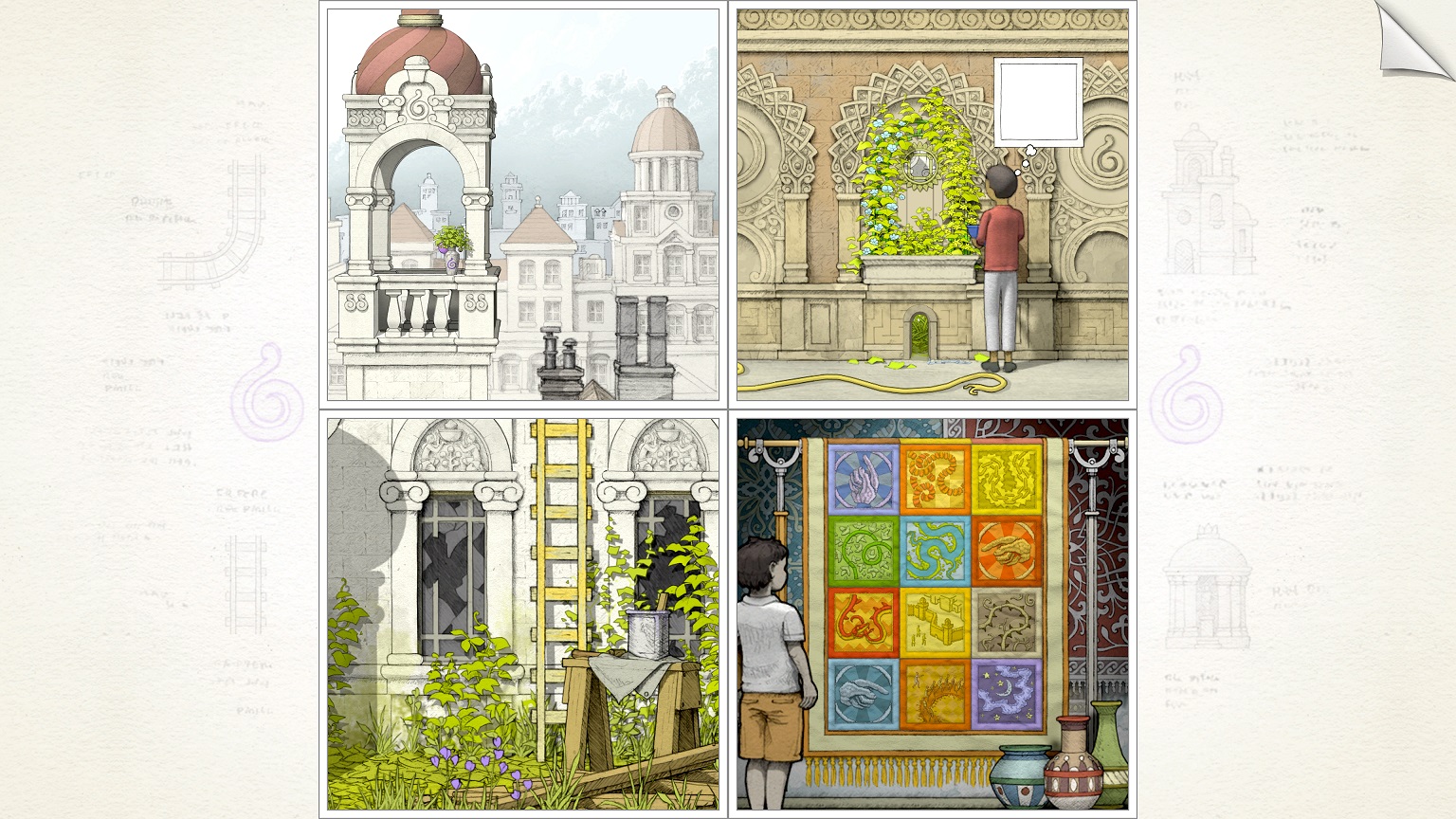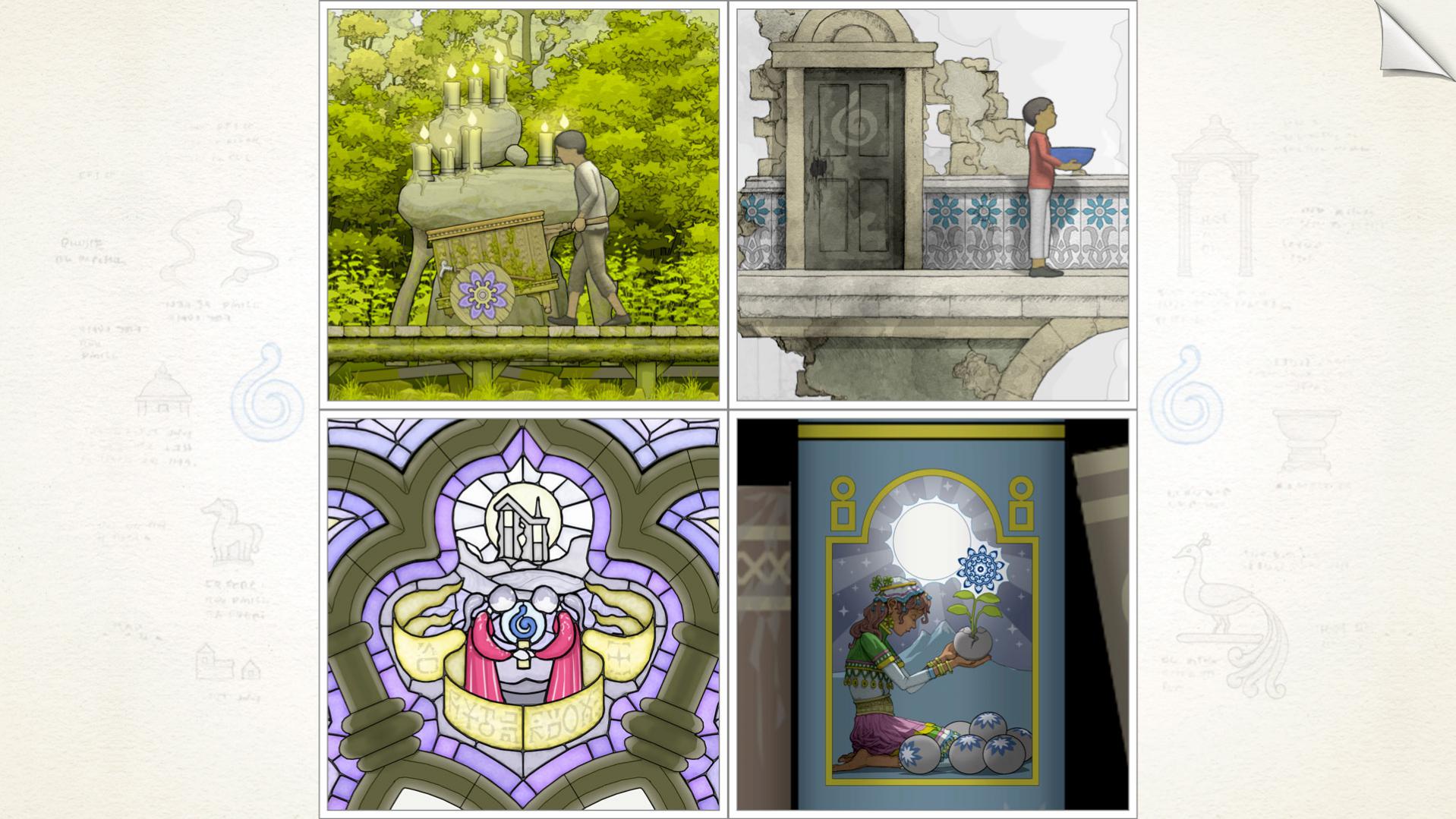Gorogoa Reinvents the Puzzle Game
I'd heard quite a bit about Gorogoa from game journalists at the end of last year. I added it to my Steam wishlist almost immediately. But it wasn't until the other day, when I noticed it was also available on Switch, that I finally bought and played it.
When most people hear "puzzle game", they think one of two things: Tetris- or match-three-style arcade games, or point-and-click adventure puzzles like Myst. It's a genre of games that everyone from casual to die-hard gamers have all played at least a couple times. It's also the subset of games that probably sees the most innovation and experimentation. Looking for ways to capture such a huge potential audience's attention can lead to amazing accomplishments or utter failures.
Gorogoa is definitely one of the examples of successful innovation. Designed, developed and illustrated all by one person, it's a game that takes you on a journey along with a nameless little boy as he tries to encounter a large mystical beast that he sees in his town. After a little research, the boy discovers that he has to collect five different colored orbs in order to meet the monster.
The actual game is always displayed in a four-square grid, which represents the four slots where you can have different images or panels at any given time. The entire game has no narration or direction, letting the player figure everything out for themselves instead. Through a combination of exploring scenes, separating different panels, or stacking panels on top of each other, the game progresses through the boy's search for the five orbs.
Connecting Gameplay to the Story
The biggest part of Gorogoa's experience is that you as the player are discovering and learning as you go, just like the little boy. While the game isn't in first person, you get a sense of the trials and effort the main character is going through because you're going through the same thing by figuring out exactly what has to be done to progress the story or move on to the next section.
In some cases, it's as easy as dragging a set of stairs from one panel onto another panel that needs two doors connected. Other times, the solutions can get a little more complex. One of the puzzles you have to figure out involves three different panels at once and makes you adjust how they're situated during a set amount of time.
The more complex ones can take some time to figure out. The more complex one I mentioned took me probably 10 to 15 minutes to work out the entire thing from start to finish. Sometimes it's just little details that can easily be looked over that will keep you sitting there, wondering why you haven't figured the dang puzzle out yet. If you sit on one puzzle for too long, it can get a little frustrating, but once you figure it out, you'll feel the greatest sense of satisfaction.
An Indie Title Worth Your Money
The best part of some indies is that they're innovative pieces of art that will keep you thinking and exploring the whole game. They're usually smaller games that can be played in a couple sittings, so there's no huge time commitment, and the price is definitely easier on the wallet than those $60 AAA games.
Gorogoa is a super-affordable $15 on Steam or Nintendo Switch, or an even more affordable $5 on iPhone, which means there's basically no excuse not to play it yourself. It's available pretty much everywhere (it's even coming to Xbox One and PS4), so no matter what kind of laptop you have or if you only have an iPad, you can play away.
Give it a try. The game's high ratings from IGN (8.5), Nintendo Life (9), Eurogamer (Essential) and the Steam community (Overwhelmingly Positive) all back up just how great this game is.

